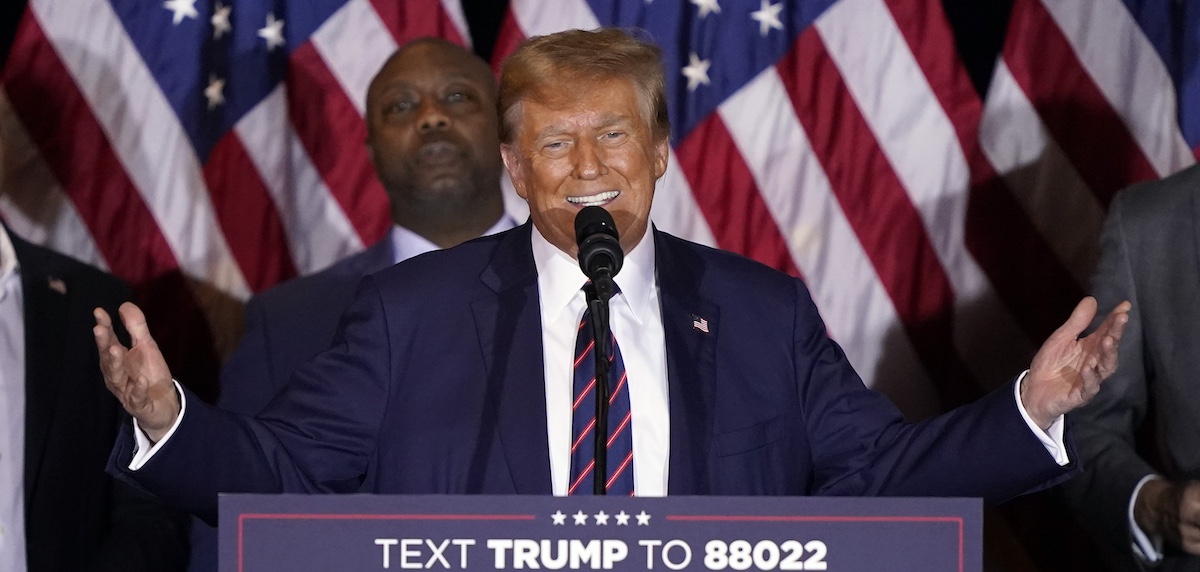All eyes are on Republican front-runner and former President Donald Trump as the 2024 election nears and he fights several legal battles. Ahead of New Hampshire’s first-in-the-nation primary Jan. 23, some social media users argued that the judge in Trump’s New York-based defamation trial was engaging in “election interference.”
“ELECTION INTERFERENCE ALERT: The judge in E. Jean Carroll defamation trial just delayed todays trial until tomorrow — the day of the NH primary,” read one Jan. 22 Instagram post.
This post was flagged as part of Meta’s efforts to combat false news and misinformation on its News Feed. (Read more about our partnership with Meta, which owns Facebook and Instagram.)
Trump’s defamation damages trial was delayed because of a juror’s illness and COVID-19 exposures in the courtroom, not to interfere with the New Hampshire primary. The trial resumed Jan. 25, two days after the primary.
E. Jean Carroll’s civil lawsuits against Trump
The trial is the culmination of writer E. Jean Carroll’s second civil lawsuit against Trump, whom she says assaulted her in a department store dressing room in 1996 and then publicly defamed her by claiming she was dishonest about the incident.
In May 2023, a jury found Trump liable for sexually abusing Carroll decades earlier — and for defaming her when he denied her allegations and said she was lying in an October 2022 Truth Social post. That jury awarded Carroll about $5 million — a little more than $2 million for the sexual abuse and about $3 million in damages for the defamation, The New York Times reported. Trump is appealing the decision.
But in a September summary judgment, Judge Lewis A. Kaplan — who also oversaw the 2023 trial — ruled that the jury’s May verdict proved that previous 2019 comments Trump made alleging that Carroll was lying were false. As a result, the current jury is being asked to decide what additional damages, if any, Trump should pay Carroll for defaming her in 2019 while he was president.
The trial began Jan. 16. Trump has attended sporadically, bouncing between the courtroom, his mother-in-law’s funeral and campaign appearances.
Initially, it was possible Trump would take the stand Jan. 22 in his own defense, but an unexpected delay shifted the trial timeline and sparked misleading online claims.
Trial delayed because of illness, not “election interference”
On Jan. 22, a juror’s illness forced a delay of Trump’s expected testimony, according to news reports. It was unclear when the trial would resume, as the court awaited the results of COVID-19 tests for all the jurors, The Associated Press reported.
That same day, Trump’s lead attorney, Alina Habba, reported a recent COVID-19 exposure, after which she ran a fever. Although she and her law partner tested negative for COVID-19 that morning, Habba said Jan. 22 that she didn’t have a problem “with a short delay for a day” so everyone could get tested.
Habba asked that the trial, and therefore Trump’s testimony, be delayed until Wednesday because of the New Hampshire primary. Judge Kaplan did not rule immediately, telling her, “Circumstances may result in you getting what you ask for, and maybe not,” The Associated Press reported.
A Jan. 22 court docket entry said the trial would be delayed until after the New Hampshire primary, but it did not specify a reason for the delay.
“Trial day ended early and trial continued to Wednesday, 1/24/2024 @ 9:30 AM,” read the docket entry. “Trial will not be held on Tuesday, 1/23/2024.”
Then, on New Hampshire’s primary day, Jan. 23, the docket was updated again to say the trial would not be held Jan. 24.

Republican presidential front-runner and former President Donald Trump speaks Jan. 23, 2024, at a primary election night party in Nashua, N.H. (AP)
Trump won the primary and gave a victory speech in New Hampshire that evening. We found no evidence that the trial delay was an attempt to interfere with the primary, nor that the delay kept Trump from New Hampshire on Election Day.
The trial resumed Jan. 25, with Trump expected to take the stand.
Our ruling
An Instagram post claimed that the judge in Trump’s defamation trial engaged in “election interference” by delaying the trial to Jan. 23, New Hampshire’s primary day.
On Jan. 22, a juror’s illness and a separate COVID-19 exposure caused a trial delay. The trial resumed Jan. 25, two days after the New Hampshire primary. Trump’s lawyer did not oppose the delay, and we found nothing to suggest the delay was meant to interfere with the primary.
We rate these claims False.
PolitiFact Researcher Caryn Baird contributed to this report.
RELATED: After New Hampshire primary win, Donald Trump misleads on Democrats voting, immigration, border wall